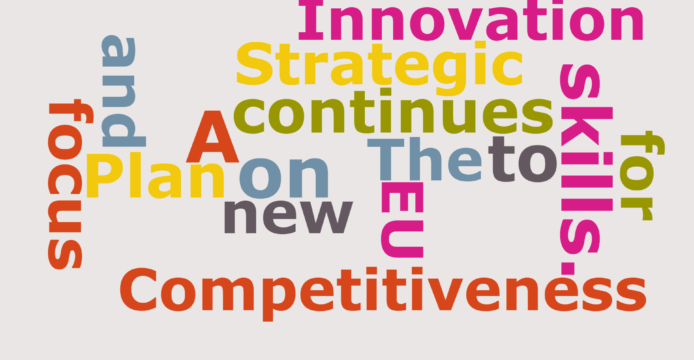The EU continues to focus on skills. A new Strategic Plan for Competitiveness and Innovation
The 3d of this last March, the European Commission has issued an important Communication addressed to all the institutions and bodies of the European Union. Entitled “A STEM Education Strategic Plan: skills for competitiveness and innovation” the document observes that “To unlock its full potential, the EU must strategically leverage its most important asset: its human capital. It notes that the Union should aim to become ‘the place where tomorrow’s technologies, services and clean products are invented, manufactured and marketed’ and calls for a stronger focus on key technology sectors to tackle emerging challenges. These sectors require urgent attention and depend on skilled workers, including in STEM (science, technology, engineering and mathematics), where demand is increasing in view of technology disruption and changing skills needs, and the number of workers is declining due to a shrinking working age population.
The Commission feels in feels that, while education and training systems have already taken steps to raise awareness and support actions to improve STEM skills, including through cooperation in the context of the European Education Area, stronger focus on STEM education and training is essential to sustain competitiveness, preparedness and technological leadership.
The Communication notes that developing a larger and more inclusive STEM talent pipeline requires more profound reforms and a comprehensive approach to STEM education and training by the Member States. For this reason, Beyond modernising curricula and upgrading teaching methods, keeping in close consideration their accessibility and inclusiveness features, industry partnerships need to be strengthened to give all students practical exposure to STEM careers. Education providers should be enabled to more directly incorporate industry feedback and workplace requirements into STEM education offers. Creating sector-tailored learning pathways that offer accessible opportunities for students and for adults can increase attractiveness. In addition, the rising demand for STEM professionals requires a comprehensive and flexible approach to education that extends beyond traditional classroom settings. Attracting STEM talents from population groups whose potential is still untapped, including from rural areas, is crucial to amplify the magnitude of the effort and to reap results. The integration of advanced digital skills such as data science, algorithmic literacy, computational thinking, encryption or cybersecurity in STEM curricula and in micro-credentials can improve the learninexperience and prepare a dynamic workforce. Professional development for STEM teachers and trainers is pivotal and requires sustained investment.
The Document proposes amongst other things the setting up of Centres of Vocational Excellence and allows a significant budget for the realisation of its goals.
It is obvious that EurEta level professionals are about to have their moment in the EU. Let’s work together to make the most out of these very important evolutions!

